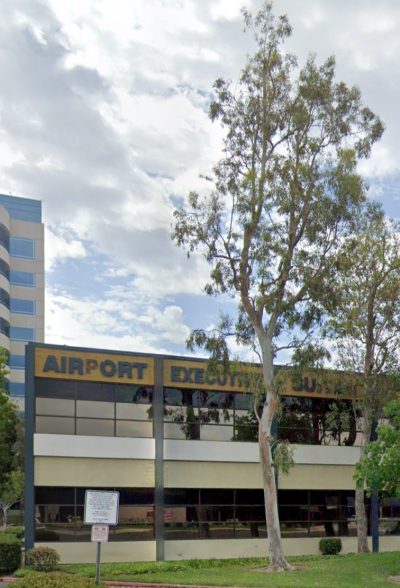Resolve Your FBAR Penalties or Form 8938 (‘FATCA Form’) Penalties, and/or Penalties for Failure to File Forms 926, 3520, 3520-A, 5471, 8621 or 8865
If you have failed to file an FBAR, or a Form 8938, or Forms 926, 3520, 3520-A, 5471, 8621 or 8865 to report your foreign accounts, assets and/or income, you face major IRS penalties – but international tax attorney Andrew L. Jones is available to discuss solutions with you now in a free and completely-confidential consultation.
Your options for resolving your foreign asset/account noncompliance include one or more of the following IRS voluntary disclosure programs:
If your failure to report your foreign accounts/assets (‘noncompliance’) was non-willful, also known as negligent, this program may be right for you. To successfully resolve your exposure to IRS penalties for your foreign account/asset noncompliance, you must convince the IRS – via an extremely detailed and high-stakes written narrative attached to Form 14653 or Form 14654 – that all your errors and omissions were non-willful in nature. Depending on your days in the US in the last three years, you will pay a one-time-only 5% of assets penalty, or you may pay no penalty at all.
-
Delinquent FBAR Submission Procedures / Delinquent International Information Return Submission Procedures
Most taxpayers with foreign account/asset noncompliance have failed to file both an FBAR and one or more of the following Forms: Forms 926, 3520, 3520-A, 5471, 8621, 8865 and/or 8938. The Delinquent FBAR Submission Procedures may resolve the failure to file the FBAR, while the Delinquent International Information Return Submission Procedures may resolve the failure to file any or all of the following Forms: Form 926, Form 3520, Form 3520-A, Form 5471, Form 8621, Form 8865 and/or Form 8938.
Resolution of your noncompliance through these programs is very desirable because they do not require payment of a penalty, but difficult to achieve since eligibility for the programs are limited to those who:
- Have reasonable cause for their failure to file and
- Have specialist international tax counsel who produce a written reasonable cause statement sufficient to convince the IRS that the taxpayer had no possible reasonable pathway to become aware of his obligation or meet his reporting obligation.
-
Voluntary Disclosure Practice
This now-rare option for resolution of foreign account/asset noncompliance allows a taxpayer whose errors and omissions were willful – generally meaning intentional and knowing – to achieve the closest possible thing to a guarantee of non-prosecution, but at an enormous cost of a penalty equal to 50% of the peak value of foreign accounts in the last six years, plus other substantial penalties.
Choosing among these three pathways requires understanding the taxpayer’s state of mind at all times, in regards to all violations of his tax and informational reporting obligations. The taxpayer must then support his claim, in detail, that:
- He had reasonable cause for his noncompliance (if disclosing under the Delinquent Procedures),
- He was non-willful in his noncompliance (if disclosing under the Streamlined Procedures), or
- He was indeed willful in his noncompliance (if disclosing under the Voluntary Disclosure Practice).
Our IRS Voluntary Disclosure Experience Is Key
International tax attorney Andrew L. Jones has guided hundreds of clients through the collective disclosure of over $300 million in previously-unreported foreign assets (statistics as of September 2024). Andrew has advised clients with undisclosed or hidden foreign bank accounts and financial assets ranging in value from $150,000 to eight figures.
Not a single one of Andrew’s clients’ Streamlined Domestic Offshore Procedures or Streamlined Foreign Offshore Procedures filings have ever been challenged or rejected by the IRS.
Andrew earned his J.D. and LL.M. in Taxation, with distinction, from Loyola Law School, Los Angeles, and has since 2009 limited his work as a tax attorney solely to international taxation and foreign account reporting controversies, compliance and planning.
What’s Different About Our Approach to IRS Voluntary Disclosure?
- Direct and Continuous Contact with Tax Attorney Andrew L. Jones
Most law firms are structured like a pyramid: the ‘rainmaker’ attorney(s) at the top who consult with pre-qualified client prospects after the client prospect waits multiple days or weeks for an opening in the rainmaker’s schedule – a consultation that the client prospect pays for!
The rainmakers are salesman who don’t do much (if any) of the actual work once the firm is engaged. Instead, the actual work is done by an interchangeable cast of underlings – but never as well as it would have been done by the ‘name’ firm partner who was so impressive on that initial call.
Something fundamental is lost when the person who sells you on the firm’s services is not the same person who conducts the core services. Multiple clients who first worked with the traditional firm, then came to us after losing faith in the competence of that first firm, have spoken of the noticeable drop-off in service and competence between the silver-tongued rainmaker attorney who sold the work, and the overburdened staff members (often non-attorneys) actually performing the work. Over and over, these new clients of our firm have spoken of their disappointment in the performance of the previous firm, and specifically how the staffers with whom they actually interacted so often ‘just didn’t get it.’
Contrast that usual disappointing process to what you’ll experience when you call us and hire us:
-
Andrew personally answers your calls, often when you make them, not days or weeks after you’ve realized you have a problem. Andrew is your point of contact throughout your voluntary disclosure, starting with your free initial consultation and for every exchange you have after that. Yes, the first voice taking your call or returning will be Andrew, and you will work one-on-one with Andrew through to the end. Your initial consultation with Andrew will often be immediate: where other firms still have you talking with a secretary and planning a call days or weeks in the future, you’ll already be talking substantively with Andrew about your foreign asset disclosure needs. That initial call will always be free.
-
Andrew personally writes every word of your narrative statement (the Certification of Non-Willfulness (Forms 14653 or 14654) for asset disclosures via the Streamlined Domestic Offshore Procedures or Streamlined Foreign Offshore Procedures, or the reasonable cause statement for foreign asset disclosures via the Delinquent International Information Return Submission Procedures and Delinquent FBAR Submission Procedures).
-
Andrew personally supervises the accounting phase (creation or amendment of returns and/or FBARs) of your engagement.
Aggressive Representation to Resolve Foreign Asset Noncompliance For Low or Zero Penalties
A substantial number of Andrew’s clients have successfully disclosed their foreign asset noncompliance through the Delinquent International Information Return Submission Procedures and/or the Delinquent FBAR Submission Procedures. Where fact-appropriate and acceptable in risk profile, Andrew has aggressively deployed reasonable cause arguments, winning zero-penalty results in virtually every instance. This is a record of vigorous and effective advocacy which stands in sharp contrast to the risk-avoidant mindset of numerous other international asset disclosure attorneys and volume-focused tax law firms whose solution for every instance of noncompliance – regardless of the facts – is to disclose via the Streamlined Procedures, leaving their often completely-blameless clients to pay an unnecessary 5%-of-assets penalty.
Additionally, numerous clients with exceptionally challenging facts have, with Andrew’s counsel, successfully disclosed their foreign asset noncompliance through the Streamlined Domestic Offshore Procedures or the Streamlined Foreign Offshore Procedures, rather than the extremely expensive Voluntary Disclosure Practice. Here, too, where fact-appropriate and acceptable in risk profile, Andrew has repeatedly succeeded in resolving clients’ noncompliance via the Streamlined Procedures. As a result, those clients paid that program’s 5%-of-assets penalty rather than – as other, risk-avoidant international asset disclosure attorneys so often do – disclose via the Voluntary Disclosure Practice, consigning their negligent, but not willful clients, to unnecessarily pay the VDP’s confiscatory 50%-of-assets penalty.
Experience matters, and working with our firm, which limits its practice exclusively to foreign asset voluntary disclosure cases, means no surprises and no learning on the job.







